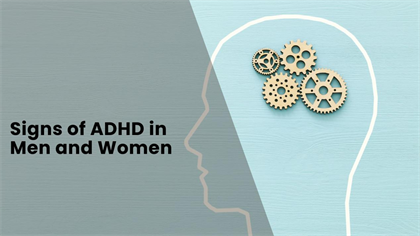
The Evolution of Online Counseling: Insights from Mental Health Professionals
February 17, 2025
Introduction: The Rise of Online Counselling in a Changing World
Before the COVID-19 pandemic, in-person therapy was the standard practice in mental health care. While remote counseling existed, its adoption remained limited due to concerns over effectiveness, privacy, and ethical considerations. However, the pandemic dramatically shifted the landscape, necessitating the rapid transition to online counselling. This shift not only highlighted the advantages of virtual therapy but also revealed challenges that need to be addressed for its continued success.
A recent qualitative study explored the experiences of mental health professionals with online counseling during the pandemic, examining their evaluations, challenges, and recommendations for future improvements. The findings provide valuable insights into the evolving role of internet psychotherapy and its long-term potential in mental health care.
Evaluating Online Counseling: Key Takeaways from Mental Health Experts
Mental health professionals who participated in the study reported largely positive experiences with online counseling. The primary advantages included:
- Increased Accessibility: Clients from remote areas or those with mobility issues could access therapy easily.
- Convenience and Flexibility: Clients and therapists saved time and reduced travel-related expenses.
- Continuity of Care: Therapy sessions remained uninterrupted even during lockdowns.
Despite these benefits, therapists also identified several challenges:
- Limited Nonverbal Communication: Body language cues were harder to interpret.
- Technical Difficulties: Internet disruptions and software issues affected session quality.
- Privacy Concerns: Ensuring confidentiality in online settings was a challenge.
- Lack of Training: Many therapists had no prior experience with digital platforms.
Online vs. In-Person Counseling: A Comparative Analysis
While online counseling proved effective in maintaining therapy sessions, many therapists still viewed in-person sessions as the gold standard. Some key differences include:
- Therapeutic Bonding: Building trust and emotional connections was more challenging online.
- Use of Therapeutic Tools: Some therapeutic techniques, such as art therapy or body-based interventions, were difficult to implement remotely.
- Client Engagement: Some clients found it harder to stay focused in a virtual setting.
That said, online counseling was found to be particularly effective for cognitive-behavioral therapy (CBT) and other structured approaches, whereas psychodynamic therapy required additional adaptation.
Factors Influencing the Effectiveness of Online Therapy
The study revealed that the success of online counseling depends on multiple factors:
- Technological Readiness: Stable internet connections and secure platforms are essential.
- Client Preferences: Some individuals prefer in-person interactions, while others appreciate the anonymity of virtual sessions.
- Therapist Training: Adequate training in digital ethics, online communication techniques, and crisis management improves session effectiveness.
- Contextual Considerations: Factors like economic background, cultural perceptions, and client comfort level with technology play a significant role.
Future of Online Counseling: Recommendations for Improvement
As online therapy continues to evolve, mental health professionals suggest several improvements:
- Comprehensive Training: Formal education on digital counseling methods should be integrated into therapist training programs.
- Stronger Ethical Guidelines: Standardized protocols for privacy, security, and ethical considerations must be established.
- Hybrid Therapy Models: A combination of in-person and virtual sessions can maximize effectiveness while retaining flexibility.
- Enhanced Digital Tools: AI-driven therapy assistants, VR-based interventions, and secure telehealth platforms can enhance client engagement and session quality.
Conclusion: A Transformative Shift in Mental Health Care
The pandemic accelerated the adoption of online counseling, proving that virtual therapy is not just a temporary solution but a viable long-term option. While challenges remain, continued investment in training, technology, and ethical practices will strengthen the future of internet psychotherapy. A well-balanced approach, combining online and offline interventions, could be the key to a more accessible and effective mental health care system. We recognize the value of both traditional and digital counseling methods. Whether you prefer in-person therapy or the convenience of virtual sessions, our expert mental health professionals are here to support you every step of the way. Start your journey toward emotional well-being today.
You Might Like Also

Uncovering the Overlooked Signs of ADHD in Men and Women

7 Benefits of Psychological Counselling You Should Know

Power Bank















